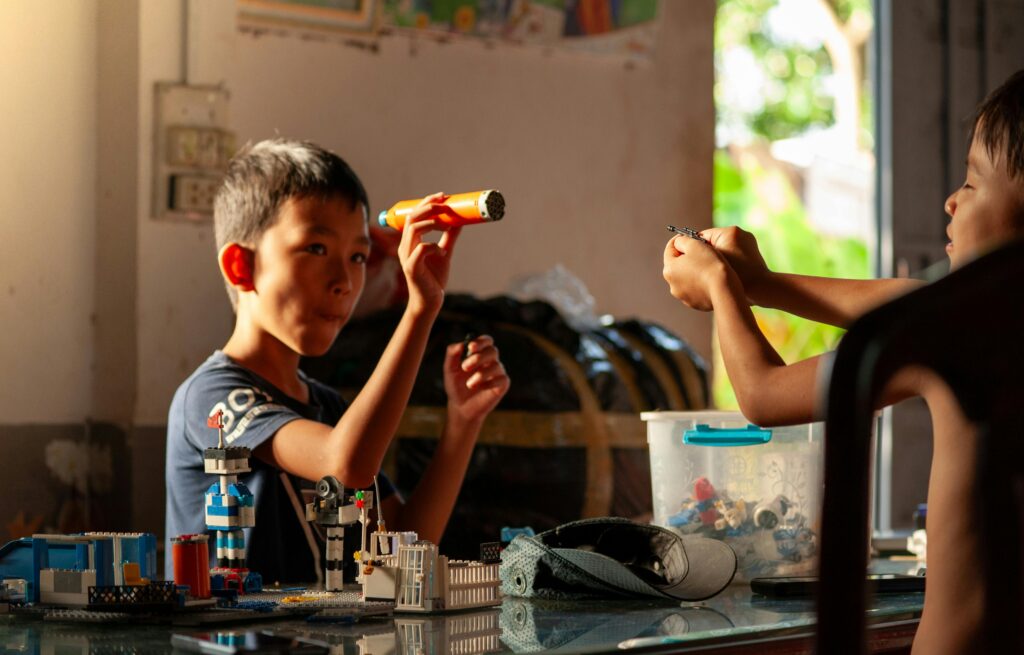The Critical Role of Parental Presence in Early Childhood Development

Host: steven bartlett, The Diary of a CEO
This is a breakdown of the podcast from the Diary of a CEO with the guest Erica Komisar a clinical social worker, psychoanalyst, and parent guidance expert.She is the author of books such as, ‘Chicken Little the Sky Isn’t Falling: Raising Resilient Adolescents in the New Age of Anxiety’. ‘Being There: Why Prioritizing Motherhood in the First Three Years Matters’
Introduction
Child psychologist Erica Komisar highlights the foundational importance of consistent parental especially maternal presence during the first three years of a child’s life. This formative period is crucial for a child’s emotional security, neurological development, and the ability to regulate stress. Komisar challenges the widespread belief in early daycare, warning that prolonged separation from primary caregivers can lead to behavioural issues, attachment disorders, and neurological stress.
Top Key Takeaways

- The first three years of a child’s life are absolutely critical for their emotional and neurological development, with consistent parental presence, especially the mother’s, being foundational for emotional security and the ability to regulate emotions. Early and prolonged separation, such as through early daycare, is argued to be detrimental and can increase the risk of aggression, behavioural problems, and attachment disorders.
- The idea of “quality time” over quantity is a myth when it comes to raising young children. Children need their parents to be physically and emotionally present on their terms, not just when it is convenient for the adult.
- The alarming rise in childhood mental health issues like anxiety, depression, and ADHD is strongly linked to a lack of secure early attachment and increased stress in young children. Erica Komisar suggests that ADHD may often be a stress response due to early stressors activating the brain’s stress system prematurely. Instead of immediate medication, exploring underlying psychosocial stressors through parent guidance is recommended as a first step.
- Mothers and fathers have distinct but equally crucial roles in a child’s development, influenced by their nurturing hormones. Mothers are vital for sensitive, empathic nurturing and regulating a baby’s distress, while fathers play a key role in playful stimulation, exploration, and regulating excitement and aggression.
- Societal shifts towards self-centeredness, individualism, and prioritizing career and material success over children have contributed significantly to parental absence and isolation, negatively impacting children’s mental health.
- Early relational experiences, including subtle neglect (“little t” trauma), can have profound and long-lasting effects on adult mental health and relationship patterns, often leading to attachment disorders. Healing is possible through consistent, emotionally reparative relationships, including therapy.
- The changing roles of men, particularly the expectation for them to take on primary nurturing roles, can have unintended consequences, including potential decreases in testosterone and feelings of purposelessness. This is presented as an “inconvenient truth” that needs more open discussion.
- Early and unregulated use of technology, especially social media, is detrimental to children’s developing brains, raising dopamine levels, activating the stress response, and contributing to issues like addiction, anxiety, and self-consciousness, particularly in adolescents.
Top Quotes

“The first three years of a child’s life are critical. Babies need their mothers most during this time for emotional security and to develop the ability to regulate emotions and build resilience.”
“Daycare is not beneficial for very young children. It can actually be detrimental to their brain development and increase behavioural issues and attachment disorders.”
“The myth of ‘quality time’ over quantity is just that a myth. Children need our presence on their terms, not scheduled moments of attention.”
“One in five children now develops a serious mental illness. This crisis is rooted in our society’s decision to prioritize careers and material success over emotional connection and caregiving in early childhood.”
“Mothers and fathers play different but equally vital roles. Mothers provide nurturing and emotional regulation in infancy, while fathers help regulate excitement, aggression, and encourage exploration.”
“Many ADHD diagnoses in children are actually stress responses due to a lack of secure attachment and overstimulation of the developing nervous system.”
“Our modern lifestyle marked by individualism, economic pressure, and the absence of extended family isolates parents and harms children’s emotional well-being.”
“Even subtle neglect what I call ‘Little T’ trauma can lead to attachment issues and emotional challenges later in life. Childhood shapes how we form relationships as adults.”
“Modern feminism has sometimes unintentionally harmed men by denying them their unique purpose. Expecting men to be like women can lead to depression and a loss of identity.”
“Unregulated technology and early exposure to social media are harmful to children and adolescents. It dysregulates the brain’s stress response and increases anxiety.”
“Trauma caused in relationships can only be healed through relationships especially through long-term, emotionally reparative therapy.”
“We must re-prioritize the physical and emotional presence of caregivers especially mothers in the early years to foster secure attachment and prevent mental health issues later on.”
ACTIONABLE INSIGHTS

Prioritize your physical and emotional presence, especially the mother, in the first three years. This is foundational for your child’s emotional security and ability to regulate emotions. Understand that this period is crucial for brain development.
Be physically present as much as possible. Komisar emphasizes that “babies need their mothers SP the first three years for emotional security”.
Be emotionally available and responsive to your child’s needs on their terms, not just when it’s convenient for you. Understand that “you need to be there a quality of time as well as a quantity of time. You can’t have a fabulous career and then come home and be present for your child on your time it needs to be on their time”
For mothers, engage in sensitive, empathic nurturing, especially when your baby is in distress. Soothe your baby with skin-to-skin contact, eye contact, and a soothing tone of voice to help them regulate their emotions.
Understand the distinct role of fathers. Fathers should aim to be playful tactile stimulators, encouraging exploration and risk-taking, and helping to regulate excitement and aggression. Fathers can learn to be sensitive empathic nurturers by acknowledging the differences in instinctual nurturing behaviors between men and women.
Be mindful of the potential negative impacts of early daycare, especially before the age of three. Komisar argues that “day care is so bad for their brain and it’s been known to increase aggression behavioural problems attachment disorders”.
If childcare is necessary, prioritize kinship bonds (family or extended family) over institutional daycare for very young children. These individuals often have a similar investment in the child’s well-being.
Understand that young children engage in parallel play and do not require socialization with peers before the age of three. Focus on one-on-one connection and meeting their emotional needs.
Be aware that sleep training methods that involve letting babies cry it out can be stressful for their developing brains. Komisar suggests minimizing stress in the first year to keep the amygdala (stress regulator) quiet.
Recognize that the birth of a sibling can be stressful for an older child and be sensitive to their feelings. Insensitive handling of this transition can cause stress.
THOUGHTS
If you have reached here, I suppose you have read it through. Hoping that you have learn something new from here. Do share your thoughts and share it with your friends too.
Enjoy Learning.
